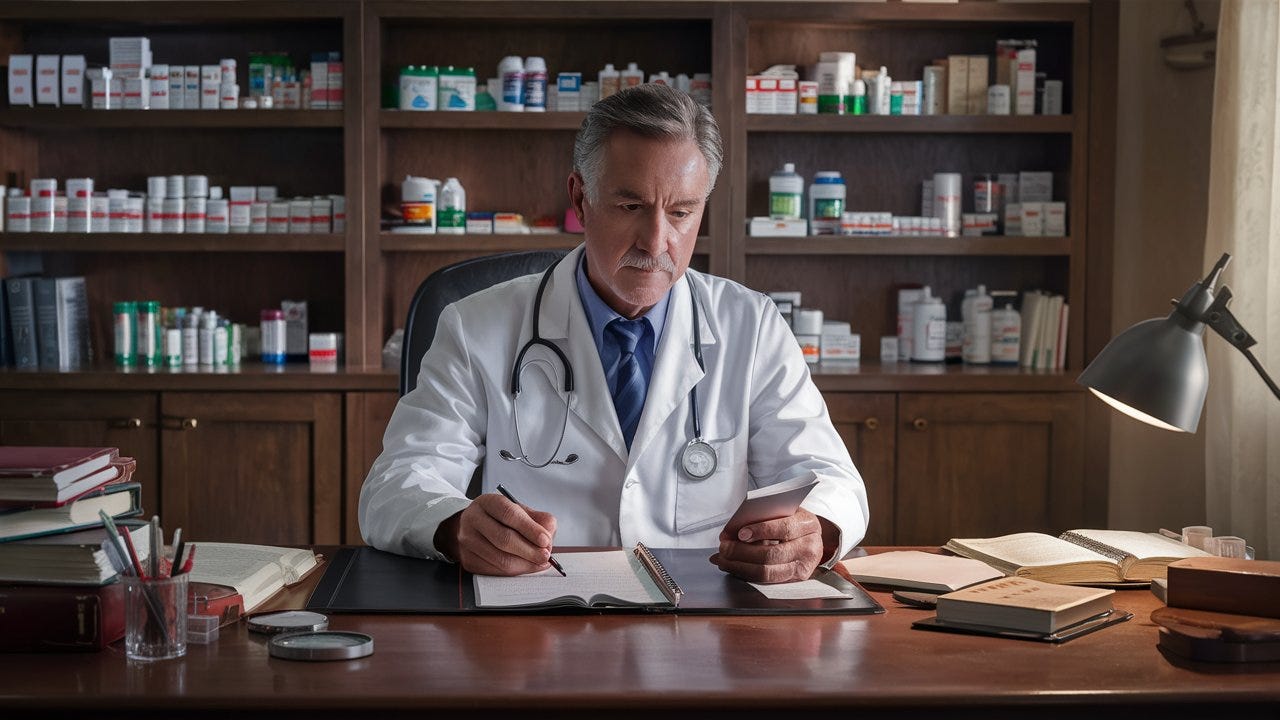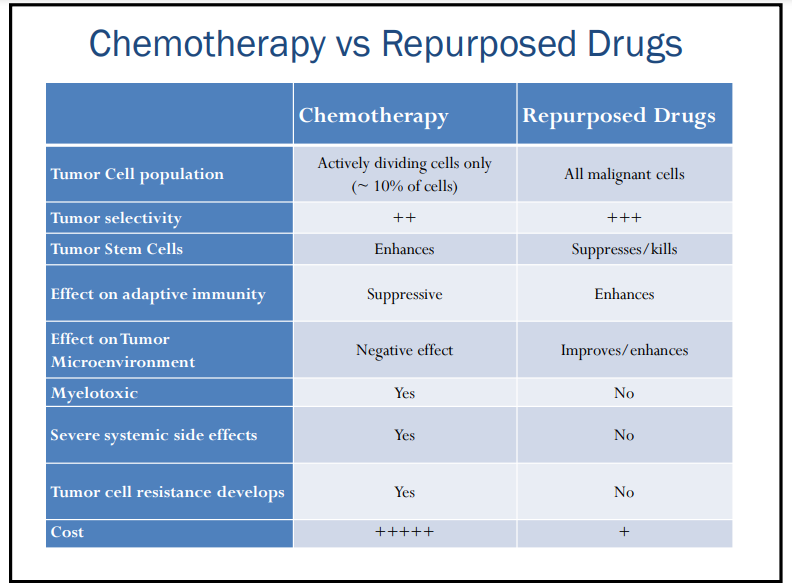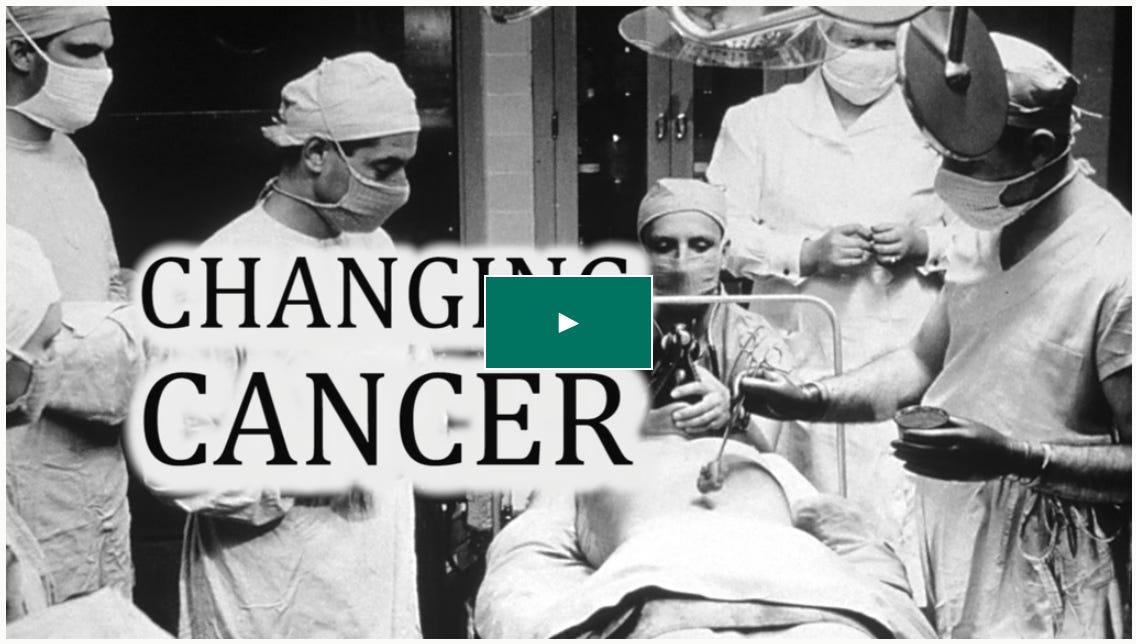What If a Better Way Exists, but No One Knows?
Repurposed drugs for cancer could help millions but few people know they exist.
We would be forgiven for thinking that new drugs are better than old ones. However, where cancer is concerned that is currently not the case. Commercial interests influence treatment protocols and favour the more profitable drugs, not necessarily the best ones.
Repurposed drugs (also known as drug repositioning or re-profiling) are medications that were originally developed and approved to treat one condition but are later found to be effective in treating a different condition. This approach leverages the existing knowledge about a drug's safety.
Since the drug has already been approved for use in one condition, its safety profile, potential side effects, and dosing information are well understood.
Drugs often become repurposed because researchers may discover new therapeutic effects of the drug through clinical observations, laboratory based research, or a new understanding of the drug's mechanisms of action.
Famous examples of drug repurposing include:
Aspirin - originally developed as a pain reliever and anti-inflammatory drug, it was later found to have cardiovascular benefits, such as reducing the risk of heart attacks and strokes.
Viagra - originally developed to treat hypertension and angina, it was repurposed for erectile dysfunction after its effects on blood flow were observed.
Benefits of Drug Repurposing
In general, drug repurposing provides the advantages of faster development, lower costs, and increased availability. More specifically, in regards to cancer treatments, repurposed drugs have a number of distinct advantages over chemotherapy.
Dr. Paul Marik has conducted an extensive review of repurposed drugs and nutraceuticals that have the potential to considerably help cancer patients. The table below, reproduced from Dr. Marik’s book titled Cancer Care, compares chemotherapy with repurposed drugs.
Repurposed drugs:
Act on all malignant cells, whereas chemotherapy only acts on actively dividing cells.
Are more likely to target the tumor itself rather than the healthy tissue.
Suppress and kill tumor stem cells, whereas chemotherapy enhances tumor stem cells.
Enhance adaptive immunity, whereas chemotherapy suppresses adaptive immunity.
Repurposed drugs can also have positive effects on the microenvironment, they do not suppress bone marrow, do not have systemic side effects, and do not run the risk of tumor cell drug resistance.
Challenges
The use of repurposed drugs in oncology is directly and indirectly suppressed in ways that causes severe limitations in their use. These challenges stem from various factors related to the pharmaceutical industry, regulatory frameworks, and the medical community.
Lack of Incentive
Many repurposed drugs are off-patent, meaning they are no longer under the exclusive control of a single pharmaceutical company. This reduces the financial incentive for companies to invest in clinical trials to further prove their efficacy in cancer treatment. In fact, there have been instances where companies have funded clinical trials that were designed to fail. So that the repurposed alternatives do not enter the wider marketplace and offer competition for newer more expensive drugs.
Approval Process
Even though a drug is already approved for one indication, it may still require further testing and regulatory approval to be used more widely. This process is time-consuming and expensive. Few organisations have the funds or the incentive to go through this process. Creating a barrier to repurposing.
Intellectual Property Issues
Since repurposed drugs often have expired patents, securing new intellectual property protection is usually not possible, making it harder to attract investment for clinical trials.
Lack of Awareness
Oncologists and researchers are often unaware of the potential benefits of repurposed drugs - leading to underutilisation.
Standard of Care
The adoption of repurposed drugs in oncology is often slow because they need to be integrated into established treatment guidelines, which can be subject to bias and influence from commercial interests.
How Can the Situation be Improved?
I believe the only way to improve this situation is to create greater awareness within the general public. Sadly, most people to do act. They accept whatever the current situation is. However, some people do take action and if this information reaches enough of the action-oriented people then we have a shot at changing the current situation with cancer.
This is what my latest documentary film is about. Actually, the topic of repurposed drugs is one of a number of important issues that will be raised in the film. However, as with repurposed drugs, the commercial interests and the medical establishment do not like the premise of this film. They would prefer that people do not have this information. They want to see more and more people stay sick and receive ineffective expressive treatments.
We have a choice. Please support this film by making a contribution on Kickstarter by clicking here or on the image below.
Or if you prefer to give your support directly, please click here.
Finally, please share this article or the Kickstarter campaign with everyone you know!





I hope this get funded. I'm completely on board with the mechanistic and institutional logic. If the research isn't fully finished I'd suggest also looking at both melatonin and POMC in terms of metabolic or mitochondrial interventions for cancer.
Aspirin WITHOUT the chemicals would be pure and organic white willow bark! https://www.prnewswire.com/news-releases/aspirin-isnt-a-wonder-drug-says-peoples-chemist-shane-ellison-162700706.html